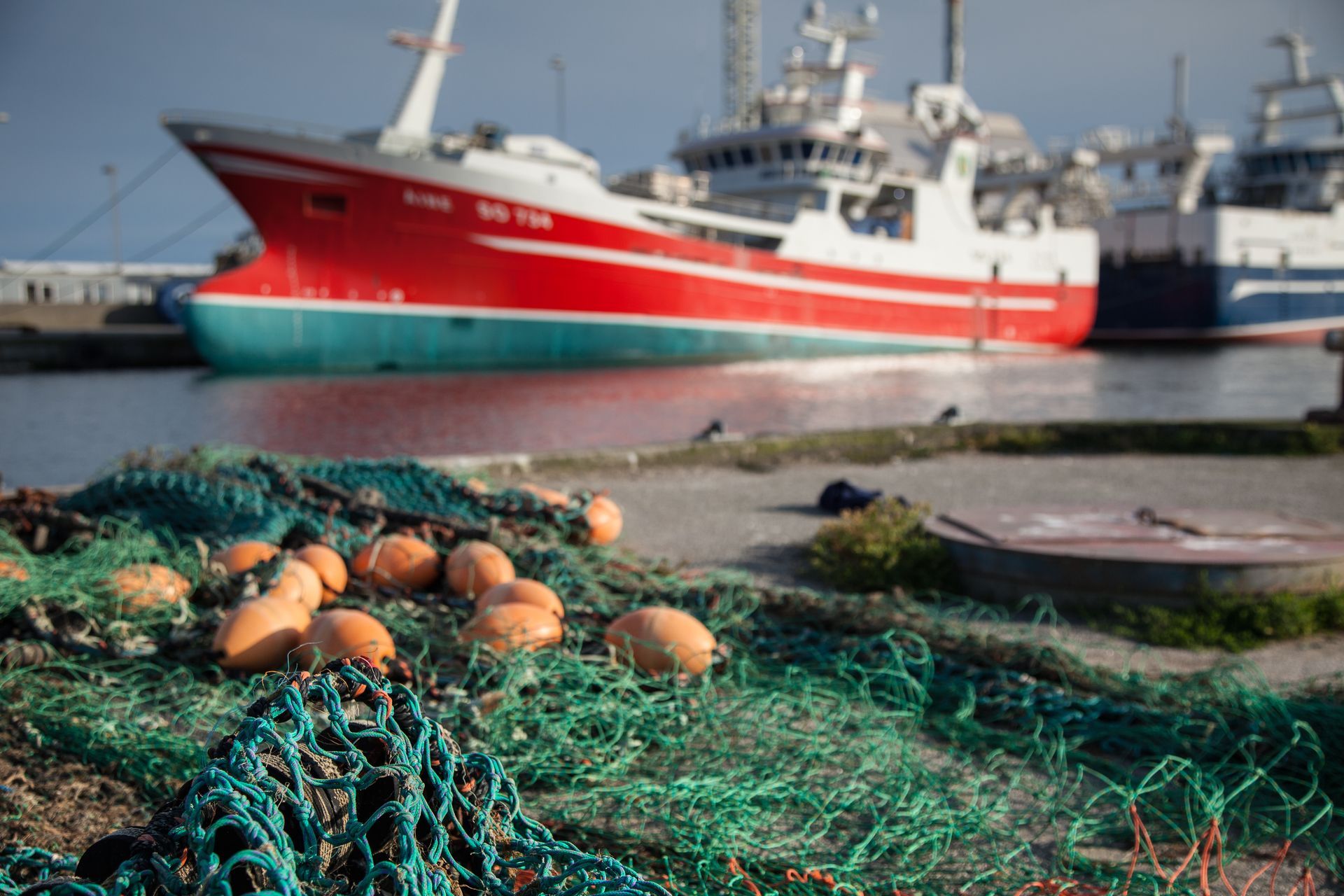News
CCB news about environmental issues, solutions, campaigns, projects & programmes in the field.
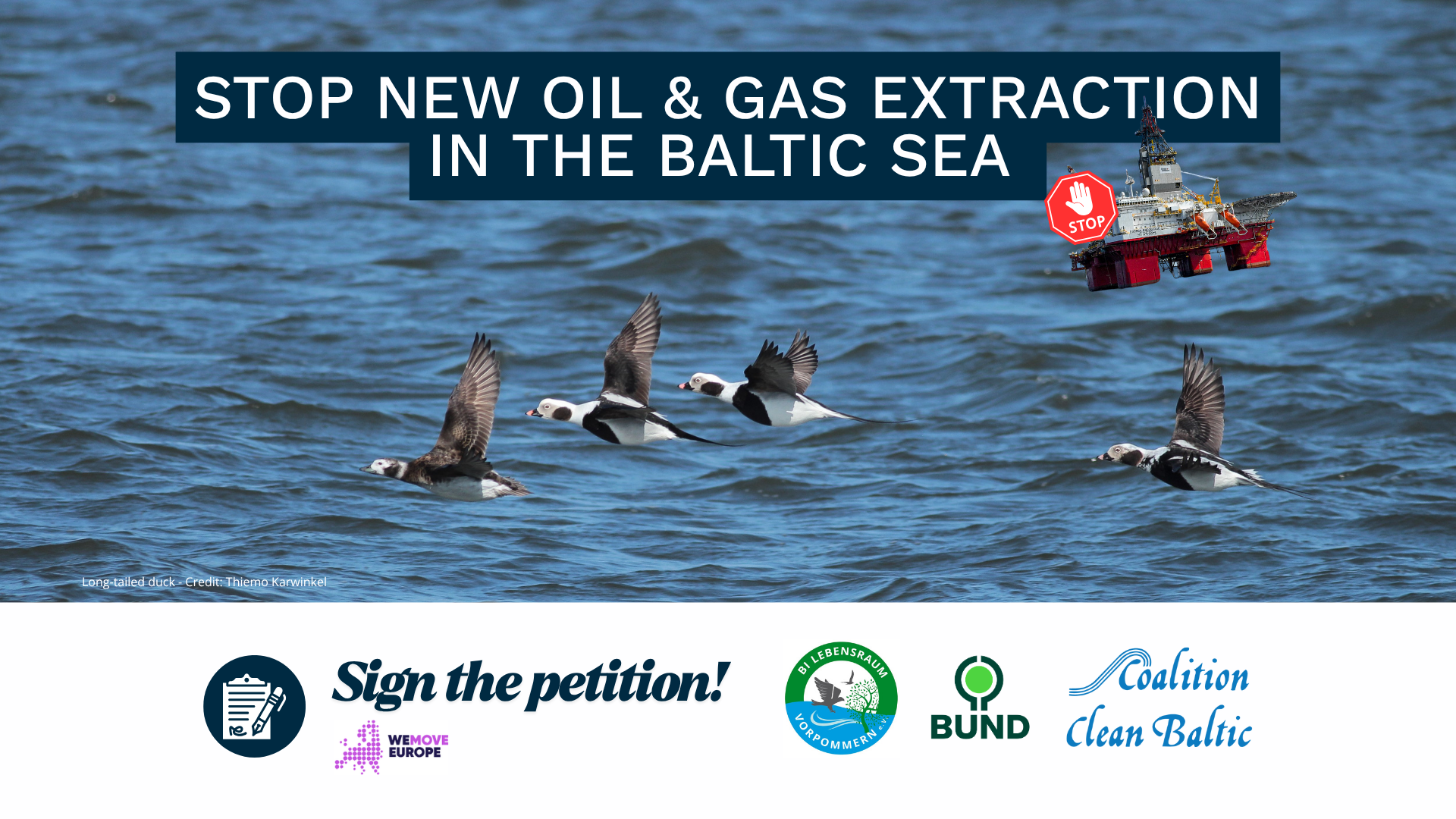
3 October 2025 - Coalition Clean Baltic, together with its Member Organization BUND - Friends of the Earth Germany and the citizens’ initiative “ Lebensraum Vorpommern ”, have launched a petition to stop new oil and gas drilling projects in the Baltic Sea . The petition comes in response to plans to exploit a deposit just 6 km offshore Świnoujście , Poland, in the transboundary waters of the Oder Estuary and Pomeranian Bay. The planned site lies at the heart of NATURA 2000 protected areas , which are vital for biodiversity, climate action, and local communities. Oil and gas extraction in the Baltic Sea poses severe threats to its fragile ecosystems. Industrial activities such as drilling, pipeline construction, and ship traffic risk polluting the water with chemicals, oil leaks, and toxic waste. Underwater noise from pile driving and increased traffic would further degrade marine habitats. These pressures add to the already critical challenges faced by the Baltic Sea, including biodiversity loss, eutrophication, and the accelerating impacts of climate change. The consequences extend far beyond nature. Local communities rely on a clean and healthy Baltic for tourism, fishing, and quality of life. Expanding fossil fuel infrastructure would also undermine Europe’s climate commitments and lock in carbon emissions for decades to come. The petition calls on the Ministry of Climate and Environment of Poland, the Helsinki Commission (HELCOM), the European Commission, and the Secretariat of the Espoo Convention to : Stop the plans for oil and gas extraction in the Oder Estuary and the Pomeranian Bay; Ban any new oil and gas extraction across the Baltic Sea; Ensure strong cross-border cooperation and communication amongst all involved states. The petition is open through the WeMove Europe´s platform and can be signed here .
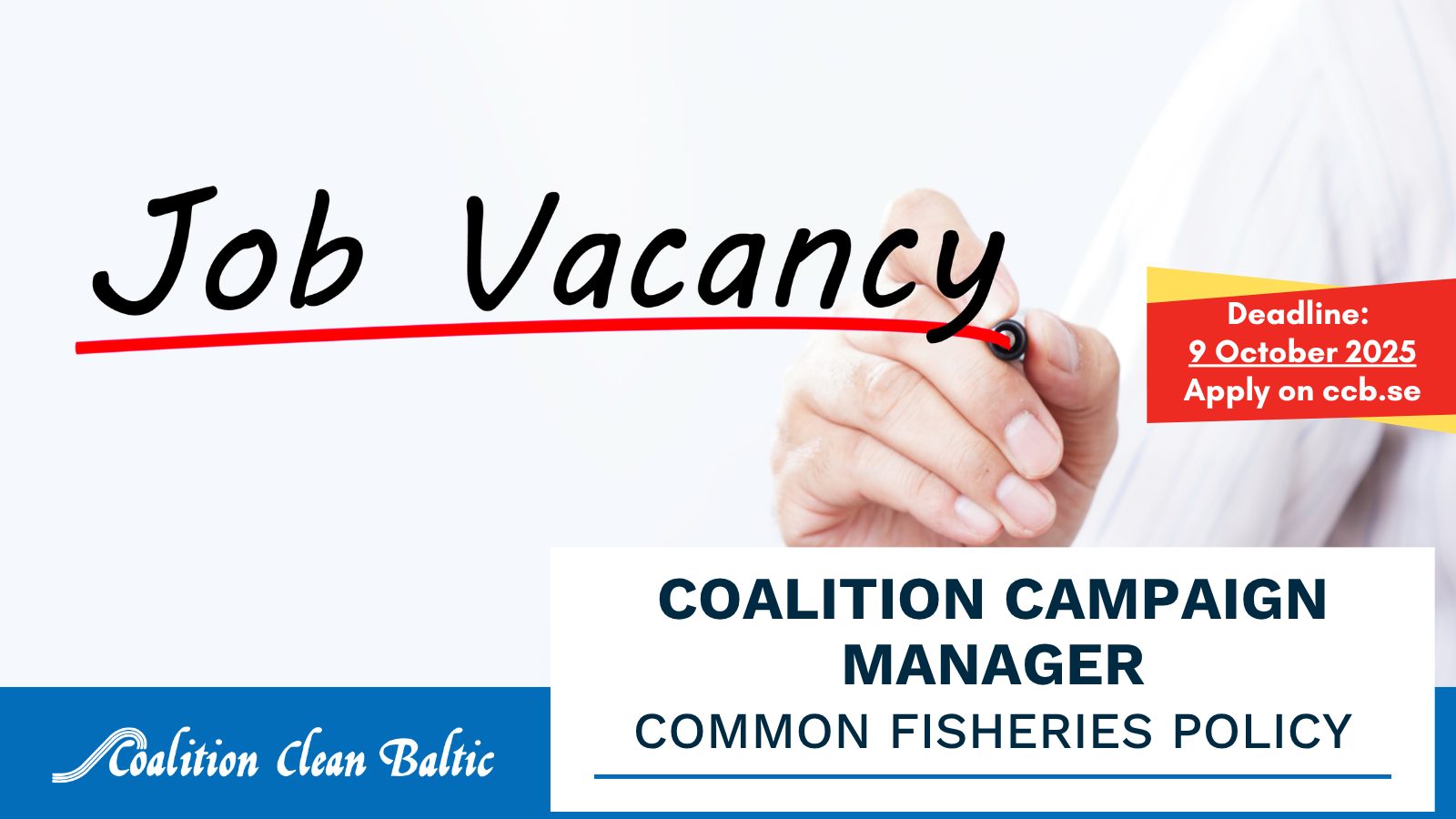
Job Title: Coalition Campaign Manager - Common Fisheries Policy Position type : Full-time consultancy contract. Open to part-time arrangements initially if needed. Contract duration: Short-term contract until end of March 2026, with possibility of extension subject to funding availability Reports to: Steering Committee Location : Flexible(remote/home office) with regular travel. Working in Brussels is of advantage. Starting date : ASAP In close cooperation with the Steering Group of the coalition, lead, plan, coordinate, and support the campaign of an NGO network working together towards the implementation of the EU Common Fisheries Policy (CFP) and the evaluation thereof. The campaign manager's responsibility is to develop and ensure the successful and timely delivery of political advocacy and public engagement activities of the campaign, both at EU and Member State level. Job description Strategy & Planning Develop and implement short-, and long-term campaign strategies aligned with coalition objectives, in close cooperation with the Steering Group. Set clear goals, timelines, and performance indicators for the campaign and ensure timely delivery thereof. Analyse policy development, political climate, media and public opinion, and stakeholder landscapes to inform tactics. Campaign Delivery Manage day-to-day execution of the campaign activities at Brussels and Member State level. Coordinate coalition partners and ensure communication between Steering Group and coalition members, as well as relevant groups/coalitions/experts and other stakeholders outside the coalition. Advise coalition members on strategic delivery of advocacy activities at all levels, including Member State level. Join Steering Group meetings in an advisory capacity. Report back to the Steering Group on the delivery of the campaign's activities, meeting of targets and milestones, and report back on activities, budget and impact. Advocacy & Stakeholder Engagement Build and maintain relationships with policymakers, key stakeholders, and allies to support campaign aims. Analyse opportunities of engagement, advise on policy language. Organise/coordinate/prepare and support relevant activities, including events, briefings, and advocacy activities in close cooperation with coalition members. Ensure relevant knowledge management and information flow within the coalition and across partner organisations. Liaise with communication experts on message framing, strategy and timelines. Management Support CCB administrative and finance staff managing grants to coalition partners. Ensure coalition partners receive information and materials that enable them to effectively contribute to achieving campaign goals (political information, policy briefings, templates, policy language, opportunity analyses). Support fundraising efforts as needed/requested by the Steering Group. Lead on funders narrative reporting. Qualifications & Skills required The consultant must be legally authorised to provide services and work as a consultant within the EU, based in an EU Member State. Fisheries and ocean expertise (preferred), or other environmental background. Degree (or equivalent experience) in communications/campaign management, political science, resource management, fisheries, or related field. Proven track record in designing and delivering successful advocacy or public campaigns at EU or Member State levels involving a larger coalition. Strong understanding of political processes at EU level and Member State levels, media landscapes, and public engagement. Excellent project management and organisational skills. Skilled communicator and coordinator, able to craft persuasive messages and engage a larger network into a common goal within tight deadlines. Ability to work under pressure, meet deadlines, and adapt to rapidly changing circumstances. Fluency in English is required; additional EU languages are a plus. Application Should you be interested in applying for this assignment, please send your CV (max. 2 pages) together with a personal letter (max. 1 page) before 9 October 2025 , COB, to secretariat@ccb.se Please include your consultancy rate in your application inclusive VAT (if applicable). Applications should be submitted in English. Incomplete applications (e.g. lacking either CV or personal letter) will not be considered . Any inquiries related to this assignment should be forwarded to the above email or to CCB Executive Secretary Mikhail Durkin at mikhail.durkin@ccb.se and +46 739 770 793. In the application and hiring process, CCB will not discriminate against any individual based on race, colour, sex, language, religion, national or social origin, property, disability, age, family status, sexual orientation and gender identity, economic and social situation. .
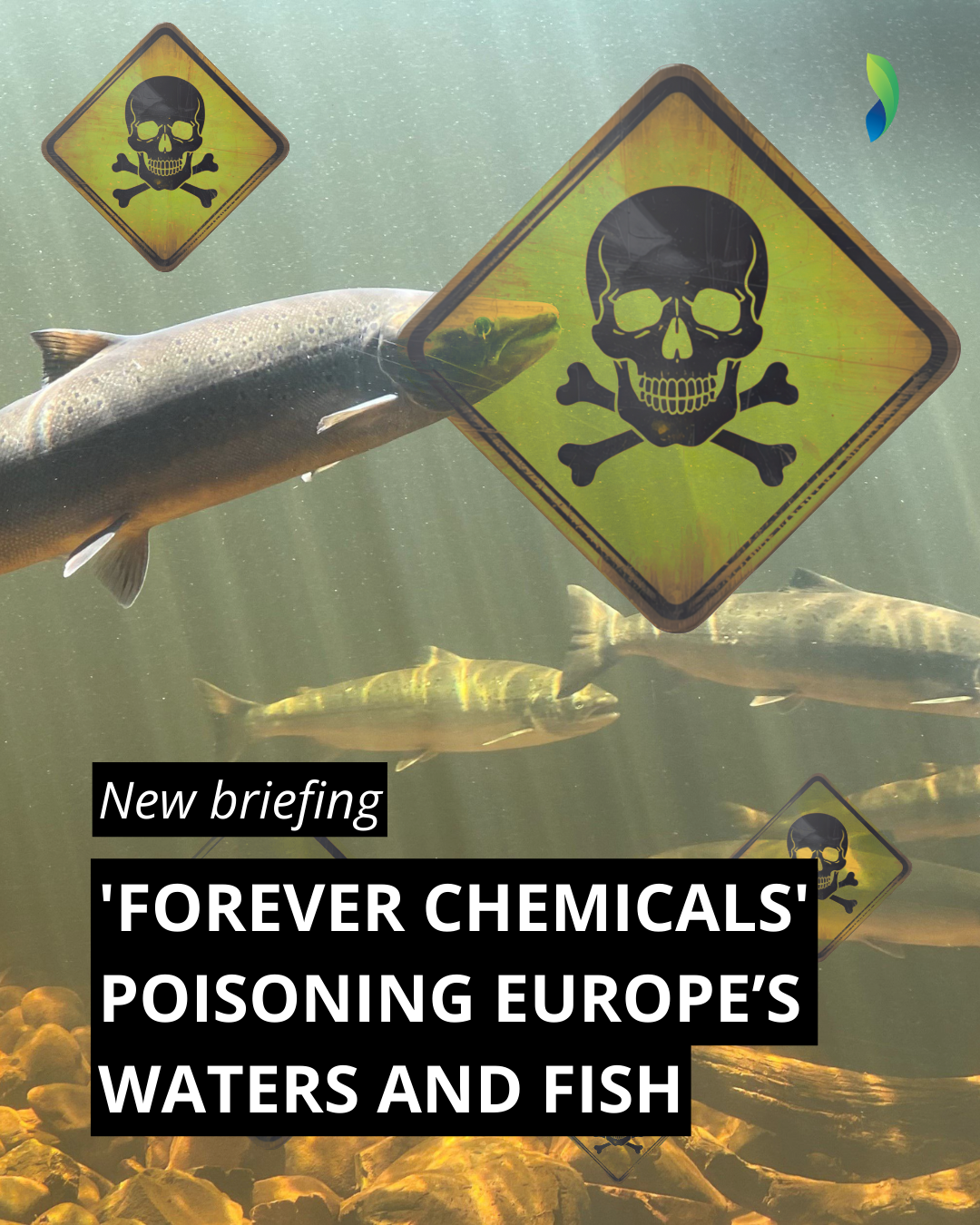
A new report from the European Environmental Bureau (EEB) and its member organisations reveals widespread PFAS contamination in wild fish across Europe, with many samples far exceeding proposed new safety limits. These so-called "forever chemicals" pose a growing threat to public health and aquatic ecosystems - yet EU Member States are pushing to delay action on needed pollution controls until 2039.
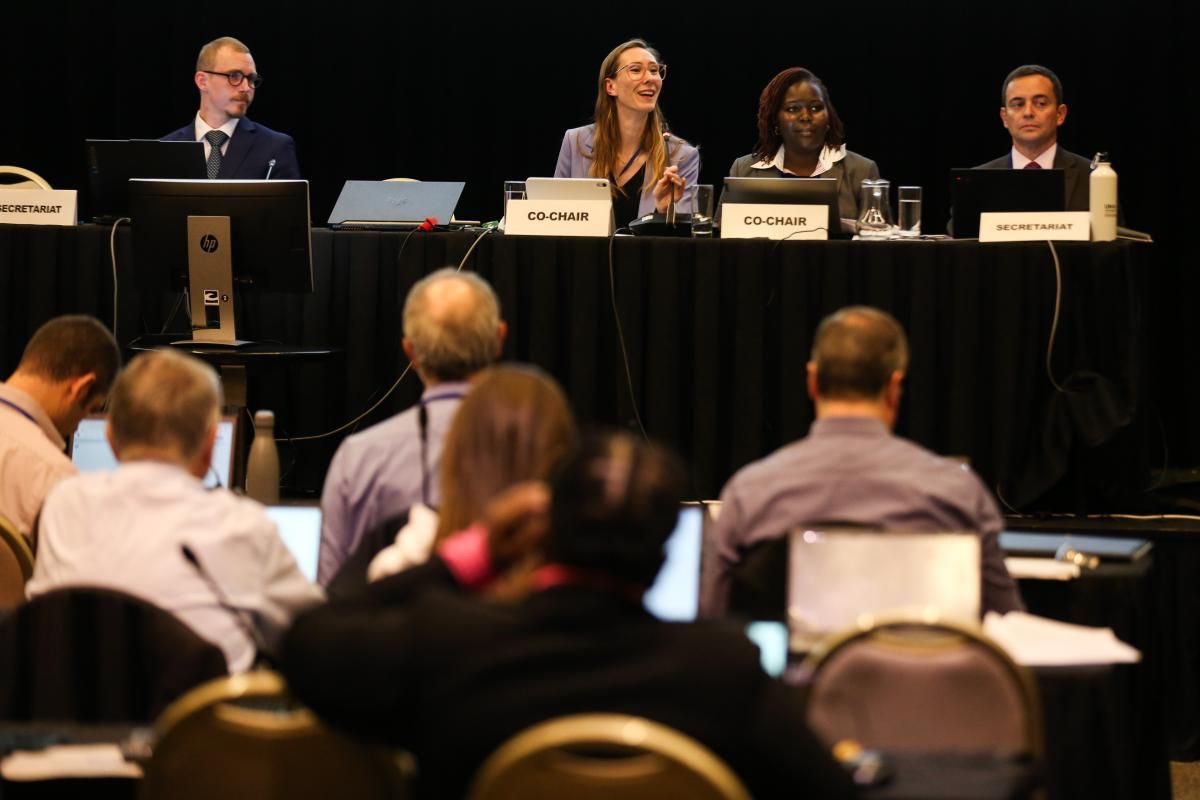
The first meeting of the Open-Ended Working Group (OEWG) on the Global Framework on Chemicals (GFC) was held in Punta del Este, Uruguay, from 23–27 June 2025 , bringing together government representatives, intergovernmental and non-governmental organizations, including the Coalition Clean Baltic representative, the private sector, youth, and academia. This marked the first global gathering since the GFC was adopted at the Fifth International Conference on Chemicals Management (ICCM5) in 2023. The primary focus of OEWG-1 was to take stock of progress since ICCM5 and to discuss how best to operationalize the framework’s goals. Participants exchanged views on implementation needs and priorities, as well as preparatory work for the first International conference of GFC , expected in 2026. Advancing Implementation Programmes Across Key Sectors A central discussion point was the development of terms of reference (ToR) for three Implementation Programmes under the GFC. One of these programmes will include sector-specific sub-programmes , aiming to promote safer chemicals management practices in industries such as electronics, textiles, health care, and construction . The intent is to support sector-wide engagement, innovation, and accountability in reducing chemical risks. Delegates also addressed the selection and future treatment of chemical Issues of Concern (IoCs) - substances or groups of substances that require global attention, e.g. lead in paints, highly hazardous pesticides, environmentally persistent pharmaceutical pollutants , and others) . While there was broad support for retaining all currently recognized IoCs, discussions highlighted the need for clear criteria, dedicated workplans, and adequate resourcing to ensure each IoC is actively addressed rather than left unresolved. Financing as a Cornerstone of Effective Implementation Discussions made clear that successful implementation of the GFC will require adequate, sustained, and predictable financial resources . The meeting explored the operation of the GFC Fund , with particular attention to how it might be improved to ensure equitable access to financial resources , especially for low- and middle-income countries. Ideas for a resource mobilization strategy were also shared, with many participants emphasizing the importance of sustained public and private sector contributions. There was significant support for applying the “polluter pays” principle , ensuring that industries contributing to chemical pollution take financial responsibility for managing its impacts. The intersessional work ahead of COP1 will be critical for shaping a robust financing mechanism that matches the framework’s ambition. Global Alliance on Highly Hazardous Pesticides launched A major milestone from the meeting was the launch of the Global Alliance on Highly Hazardous Pesticides (HHPs) . This new initiative aims to promote international collaboration, knowledge exchange, and support for safer alternatives, including agroecological approaches that reduce reliance on harmful substances in agriculture. Regional Perspectives: Implications for the Baltic Sea “ For the Baltic Sea region , chemicals management remains a critical environmental and public health issue ”, commented Eugeniy Lobanov, Leader of the Hazardous Substances Working Area at Coalition Clean Baltic . “ Implementation of the GFC provides an opportunity to reinforce regional actions under the HELCOM Baltic Sea Action Plan , especially concerning the reduction of hazardous substances entering the marine environment, e.g., pharmaceutical pollutants ”. It is important that Baltic Sea countries actively contribute to the GFC’s development and ensure regional priorities are reflected in global strategies. To read summary report of OEWG 1 . *** Article written by Eugeniy Lobanov, CCB Hazardous Substances Working Area Leader Photos by IISD/ENB - Natalia Mroz
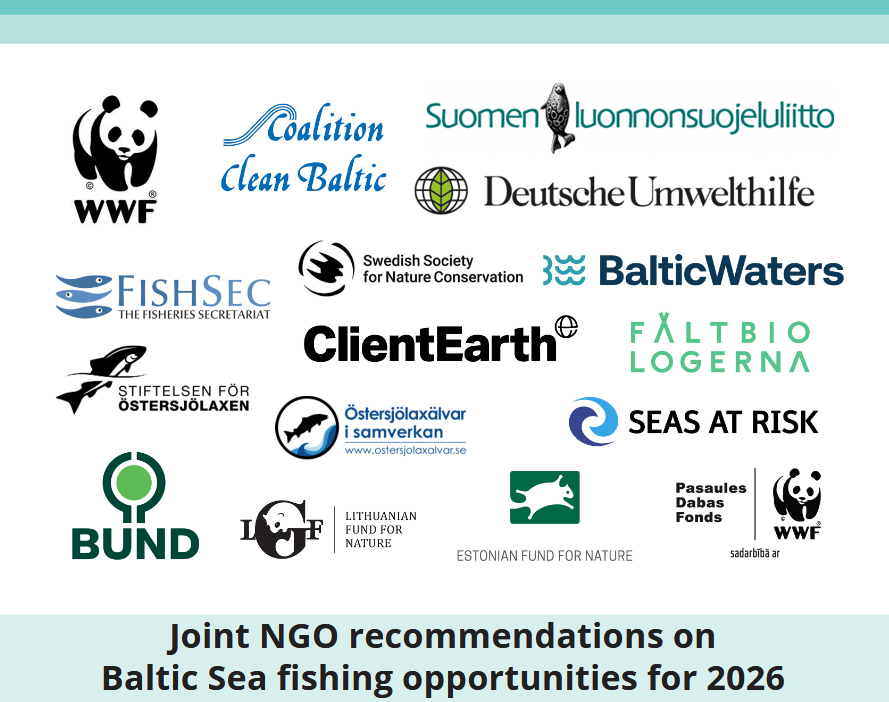
On Wednesday, 28 May, the International Council for the Exploration of the Seas (ICES) published its scientific advice for fish stocks in the Baltic Sea . In response, environmental NGOs from around the Baltic Sea region urge the European Commission to propose, and fisheries ministers to adopt, fishing opportunities at levels well below the headline advice to safeguard ecosystem needs and dynamics and allow for rapid recovery of Baltic Sea fish populations.
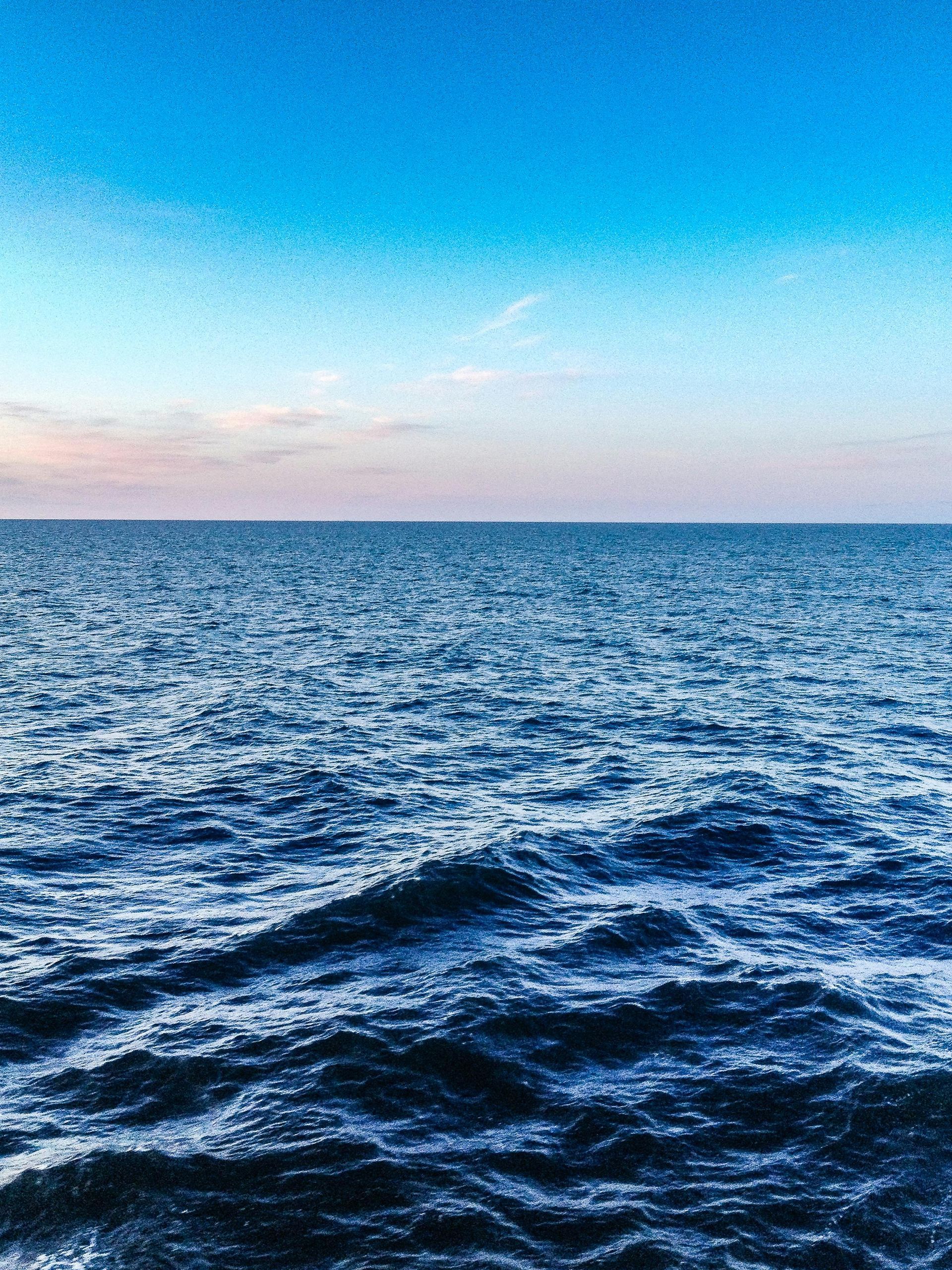
- More than 200 environmental organisations worldwide demand immediate ban on offshore oil and gas exploration to protect marine ecosystems - Coalition urges world leaders to commit to transformative ocean protection measures at UN Ocean Conference 2025 - Open letter highlights critical window for action as Ocean faces unprecedented threats from climate change, pollution and biodiversity loss
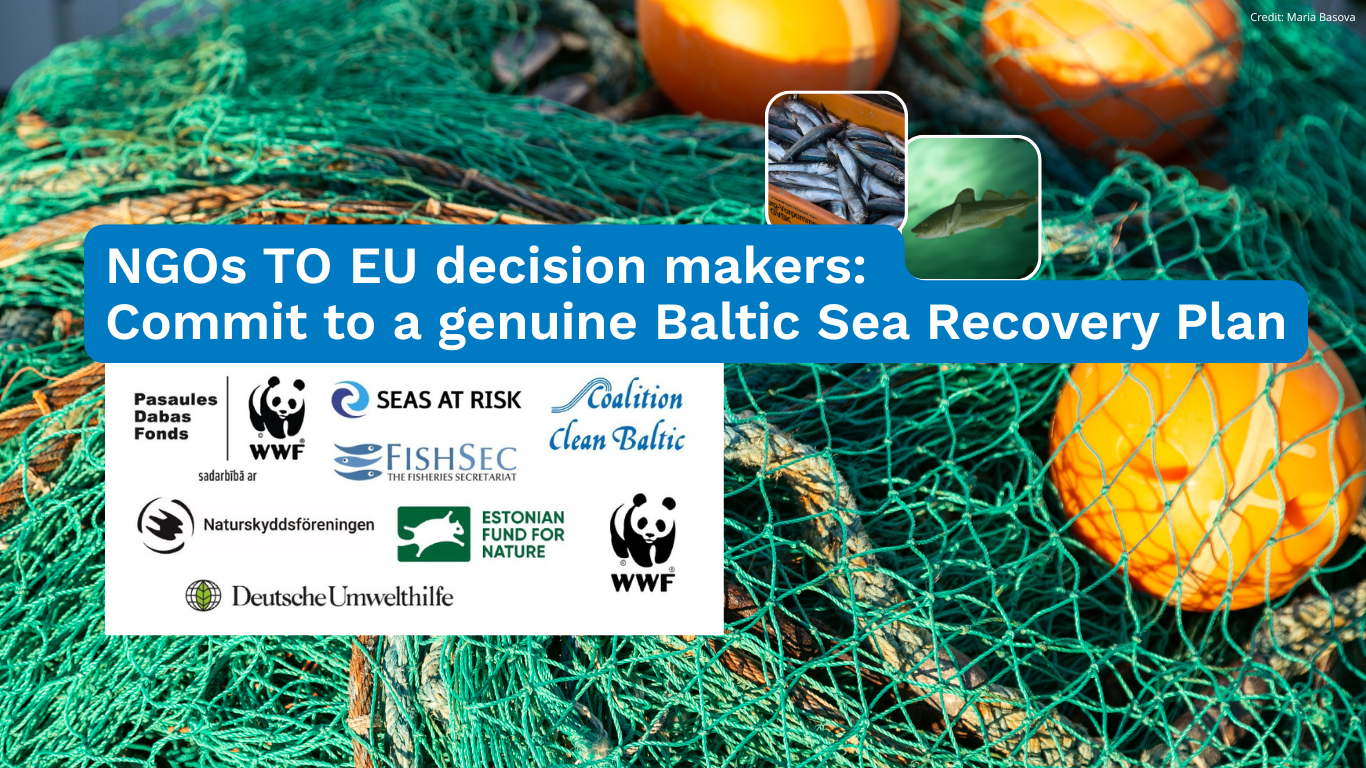
Key Baltic fish populations are in crisis, warn environmental NGOs. New scientific advice from the International Council for the Exploration of the Sea, ICES, confirms the poor condition of key Baltic fish populations, several of which remain collapsed (1). EU fisheries ministers must set 2026-catch limits well below ICES advice and prioritise long-term recovery over short-term economic gains.
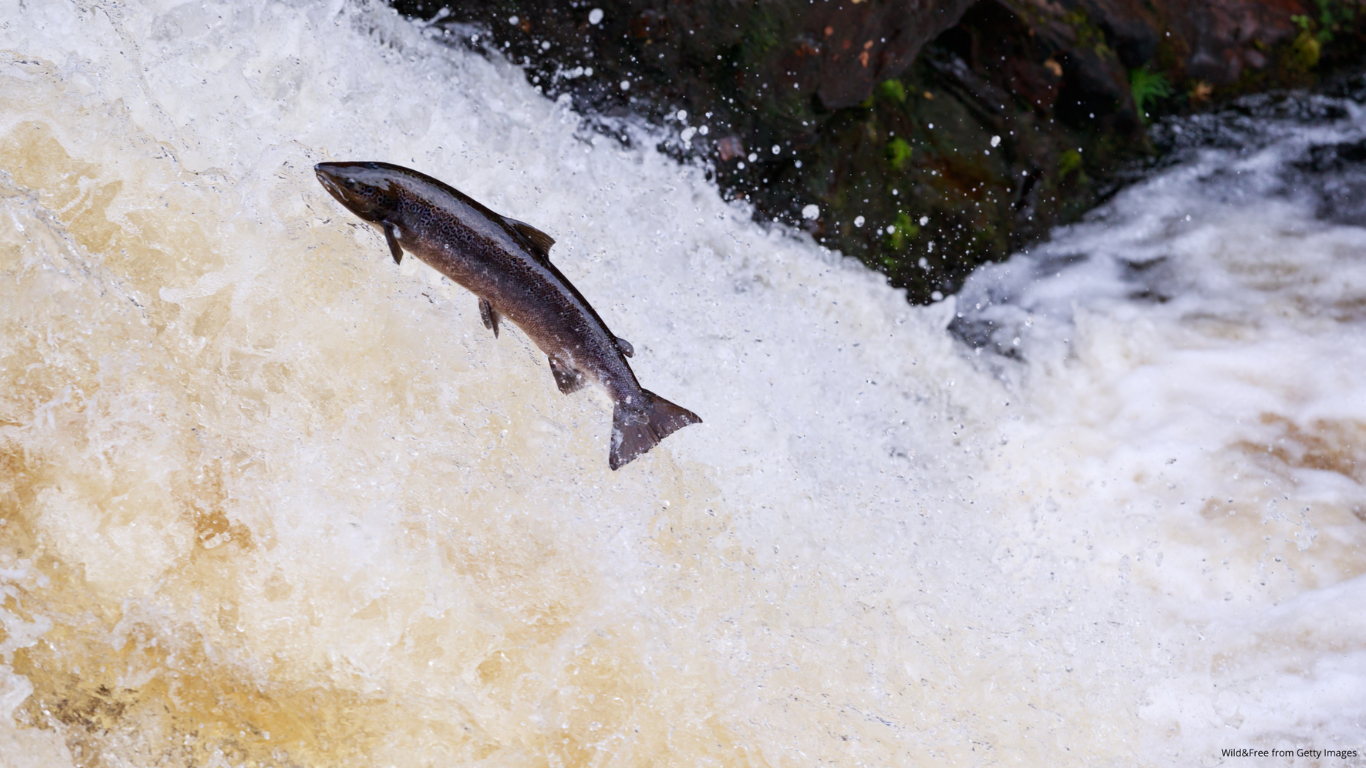
7 May 2025 - Yesterday the European Commission took a strong decision to deduct Finland´s 2025 Atlantic Salmon quota due to unjustified overfishing last year. This action is a clear application of the EU fisheries rules - aiming to ensure sustainable fishing practices and compliance with established quotas - and an important precedent for the consistent enforcement of fisheries law. In 2024, Finland was allocated a strict by-catch quota for Atlantic salmon, with direct fishing prohibited, except for some specific, minor exceptions. Despite this, Finland reported catching 3,162 salmon in a targeted fishery, under a claimed derogation stating the fishery was for scientific research purposes. Upon review, the European Commission concluded that these activities did not meet the legal standards for such an exemption and therefore found this claim unjustified. The number of vessels participating, 32, the number of salmon caught as well as the fact that Finland refused to re-release the salmon after conducting the “scientific research” are all reasons why the fishery cannot be considered to have been carried out for scientific research purposes. As a result, the same number of salmon caught beyond the legal limit in 2024 is now being deducted from Finland’s 2025 quota, from the same stock. “ We welcome the Commission's decision to take enforcement action and apply the law as intended. It sends a clear message to Member States that exceeding quotas will have consequences. However, more consistent enforcement is urgently needed across EU waters, especially in the Baltic Sea, where many fish stocks are collapsing and the ecosystem is in a poor state ” said Aimi Hamberg, CCB Marine Policy Officer. The Ministry of Agriculture and Forestry of Finland has already responded to the Commission´s quota reduction for Atlantic salmon by stating that this decision “is not legally justified” and they will consider taking legal action against it. As this matter continues to evolve, it is highlighting the importance of collective responsibility in managing fish stocks sustainably. Species like salmon, herring and cod , are under increasing pressure due to overfishing, climate change and habitat loss. In this context, rule enforcement is not just a bureaucratic step but a necessary action to ensure the long-term sustainability of marine life in the Baltic Sea.

Coalition Clean Baltic – CCB is a politically independent network, uniting 27 environmental non-profit organizations, as well as partners and experts from 11 countries surrounding the Baltic Sea. The main goal of CCB is to promote the protection and improvement of the environment and natural resources of the Baltic Sea region by encouraging new and constructive approaches and engaging people to become part of the solution instead of part of the problem. CCB Secretariat is based in Uppsala, Sweden.
